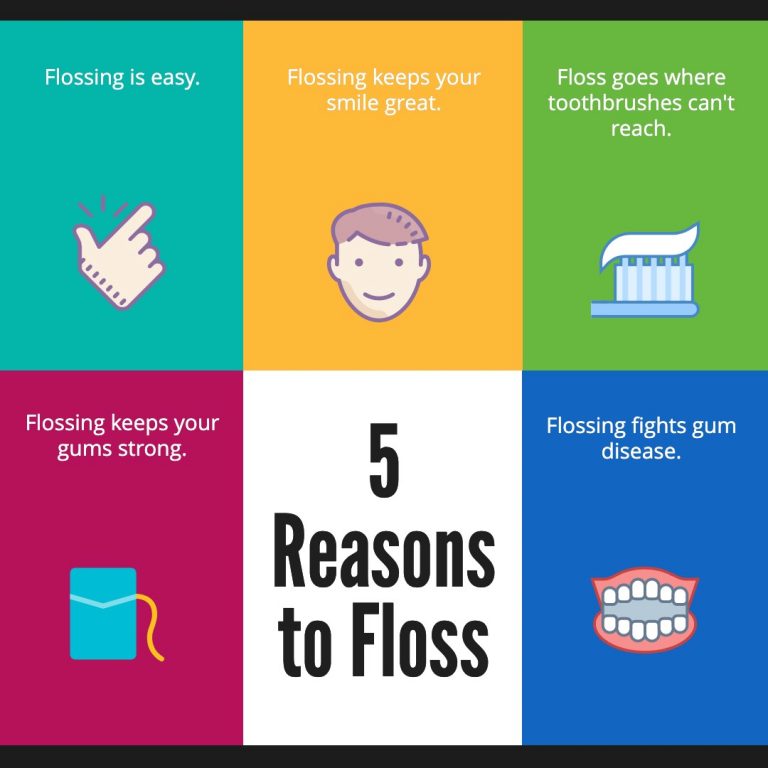
Did you know that only 50.5% of Americans floss daily? According to a study done by the American Dental Association, just over half of the people in this country actually listen to the advice of dentists across the nation. If you are a member of the 49.5% that doesn’t floss (or use weird objects to floss!), here are five reasons you should change your ways.
Flossing usually takes up only about a minute of your day and you can do it any time; all you need is some floss and a mirror! Even if you are out most of the day, floss containers are very small and can easily fit into your pocket so you can use it to get rid of any remaining food stuck in your teeth after any meal.
Everyone knows how embarrassing it is for someone you are talking with to point out that something is in your teeth. On the other hand, you might have been talking to someone, but can’t concentrate on what they are saying because of a small food particle you see in their teeth. Flossing regularly is the easiest way to prevent this awkward situation from ever happening to you as it can easily pick out noticeable remnants from any food that you have eaten.
Brushing your teeth is definitely just as important as flossing, but a toothbrush can only get so far. Flossing covers what even the most thorough brushing can’t. The thin but strong floss can get in between your teeth while a toothbrush gets the parts of your teeth that are exposed. Because of their very different capabilities, using brushing and flossing together is a recipe for healthier, better-looking teeth.
Your first experience flossing might not be the cleanest endeavor. If your gums start to bleed the first couple of days, do not worry. Many people say this is the reason they don’t floss. But the bleeding is happening because you don’t floss; your gums may be inflamed due to plaque that has built up in the crevices over time and needs to be removed. The bleeding should go away after a week of regular flossing as your gums get stronger and more tolerant of the cleaning. If the bleeding doesn’t stop after a reasonable time, contact your dentist because you might have developed gingivitis.
Bacteria can easily get stuck between your teeth and cause build up around your teeth and in your gums. Flossing reaching these areas and can break up any build-up or prevent any from occurring in the first place. This is extremely important because plaque buildup can lead to gum disease which can eventually cause heart disease, diabetes, and a high body mass index if not treated.
Now that you know the benefits, what’s stopping you from flossing?